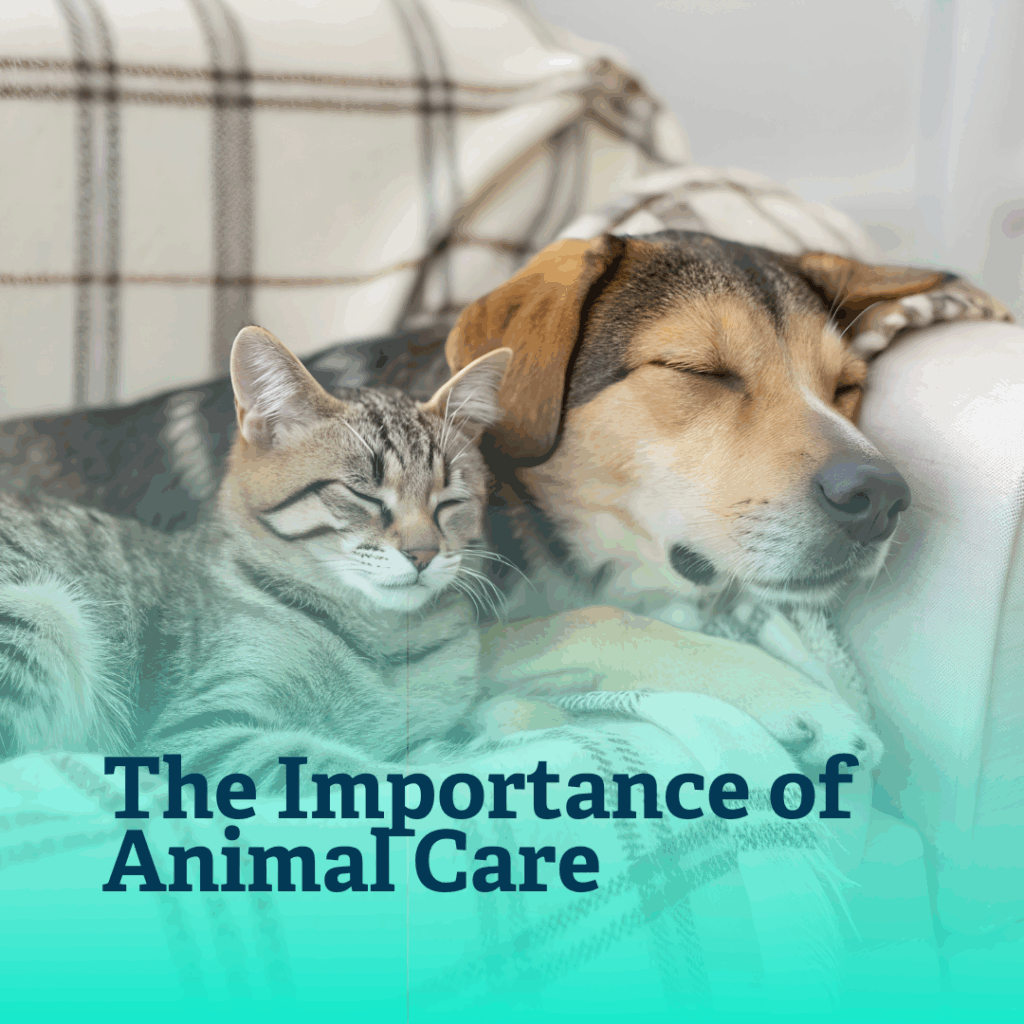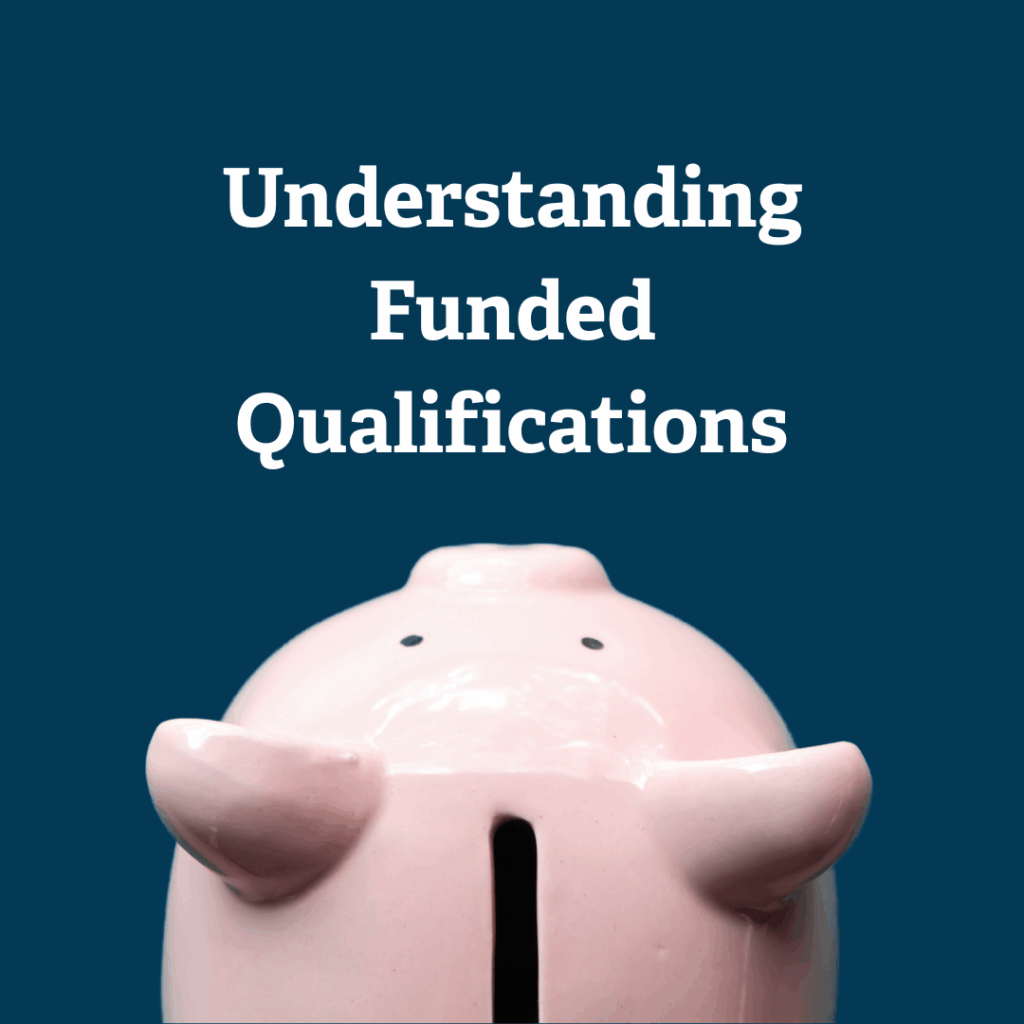30 July 2025
We spent a morning with the directors, staff, and students at Bottle Green Training Ltd. in Derbyshire to explore what further education is really like in the animal care sector. What are the challenges and opportunities facing those delivering qualifications, and what is it like as a learner in a vocational setting? Read on for the interview.
Meet Sarah Parkhouse and Jude Parry
Sarah: I’m Sarah Parkhouse. I’m one of the Directors here. I’m also the quality manager and programme lead for the Level 2 qualification.
Jude: I’m Jude Parry. I’m the other Director at Bottle Green, and I hold both safeguarding and financial responsibilities.
Sarah: We offer a variety of qualifications and apprenticeships within the animal care sector. We took over as directors in 2008. Before that, we’d also been teaching here for a few years, whilst working in clinical practice as Registered Veterinary Nurses.
What inspired you to move from Veterinary Nursing to Teaching?
Sarah: The passion. Not that clinical practice isn’t rewarding. It is. But once you get into education and meet those learners, you see the needs they have and the aspirations they have. That passion to want to help them, to educate them, and to share your knowledge. It’s really important.
What changes have you experienced since 2008?
Sarah: When we came, there were 24 learners on the books, and we were only offering Veterinary Nursing at that point. Today, we have 274 learners on the books and are providing Level 2 qualifications in veterinary nursing, animal care assistants, apprenticeships, and the Level 3 qualification. We’ve just been approved for the behaviour course that we’re currently looking at and hope to progress in the future.
Can you tell us about the Level 2 Certificate for Animal Nursing Assistants?
Jude: We were so focused on Level Three when we first started because that was all we knew; that’s how we were qualified. However, to deliver the Level 2 Certificate for Animal Nursing Assistants and to give the students a proper qualification that wasn’t just something they bought off the internet, but a high-quality, well-respected qualification that their employers respected, that improved their roles at work and their standing within the practice. It’s something, and we felt there was a gap in the market within the veterinary industry for that.
Why is the Level 2 Certificate for Animal Nursing Assistants so successful?
Sarah: It provides a baseline for any animal care career. The actual indicative content and the syllabus within it are really crucial. We begin with customer care, and reception elements, then proceed to animal welfare. We also cover anatomy and physiology. So, you’ve got the science implication within there. Then we focus more, as we go further afield towards the end of that Level 2 qualification, on infection control and all those things that are really important, not only within a veterinary practice, but other animal care industries such as catteries, kennels, groomers, all of those sorts of impacts that we have there. For us, it provides them with a solid foundation, giving them a base level to build upon. This allows them to progress to a higher-level qualification or remain within their current role, which is also okay.
How has working with Skills and Education Group benefited you?

Sarah: Really, really, well. We’ve been involved with a lot of the changes over time with the syllabus. Our Relationship Manager has been fantastic in terms of getting us involved with any trailblazers that have been happening. But also in terms of informing us of other qualifications that they could go on to offer, for example, the First Aid Level 3 and Behaviour, weren’t necessarily things that we’d thought about offering and through discussions and annual reviews that we have, it was all we thought about this and then the advancing and looking at different options to support us.
Jude: It improves our portfolio, and the fact that we can become a one-stop shop for employees. It’s not just sticking to Veterinary Care Assistants and Veterinary Nursing. Particularly with First Aid, we can offer that to receptionists, and it improves welfare, because everybody’s going to be able to do the best that they can. That’s where we come from, and that’s why the Behaviour qualification became so interesting to us, because it’s all about the understanding and that underpins everything with us. Yes, we want to provide a high-quality education, but at the same time, we want to ensure that there’s excellent welfare for the animals that people live with.
What employment pathways do you offer?
Sarah: We do have portfolio of employers, where we have that two way link between recruitment for them but also them coming to us because they’ve worked with us for X number of years to say we’ve got this learner, this is where we are we go through the interview process and look at the different routes or the options that are available for them.
What makes Bottelgreen different?
Sarah: Our inclusivity. We’re hugely passionate about inclusivity and being very aware of neurodiverse needs and disability needs. We support a huge array of learners with those needs. We spend a lot of time working with other organisations to empower learners who may have a disability or a divergence, and exploring how the animal care sector is an excellent sector for employment, where all your needs will be met. From here, from an education perspective, but we also spend a lot of time with employers emphasising that and that, to us is really, really important.
Jude: I don’t want people to think that we forget about the neurotypical students. They’re supported equally as well, but we don’t see neurodivergence as a disadvantage. We ensure that everybody is on the same level. Nobody is at an advantage, but nobody is disadvantaged either.
Everybody cares. I think that’s a big thing here – that everybody actually cares for the students.
Where would you like to be in five years?
Jude: We would like to maintain the quality, which is something that we’re very proud of. We would like to empower more students with new divergence to realise that it’s not a disadvantage and actually can be a real advantage working within the animal care sector. With the right support, you can succeed and do really, really well.
How did you develop the Level 2 Certificate for Animal Nursing Assistants?
To me, it was really important to see what would help students in everyday practice. I’ve worked alongside amazing animal care assistants, as well as incredible student nurses and veterinary nurses. Meaning, I hopefully can bring the importance of what’s happening in practice.
How did you develop the Level 2 Certificate for Animal Nursing Assistants?
When we ran the course here, we decided that Anatomy and Physiology are very important, from a science point of view, alongside the nursing that they’ll cover in practice.
And to give them that science qualification, they deserve to have a really good understanding of anatomy and Physiology. some of our learners will go on to do Vet nursing and some will stay in practice and be really strong, confidence animal care assistants.
So, either way, we’ve given them massive support at the science base, so whatever qualification they may go on to pursue, if they do, they’ve got that really good basic understanding. And if they continue in practice, it gives them a deeper understanding of what’s happening now, with our patients on the medical side as well.
Why should learners choose Bottle Green Training and What’s Next?
We are hugely supportive of our students. They come in regularly, and they get the support they need. We’ve a very close-knit network here, which is not always evident in larger establishments, so that’s really important. We also provide ongoing professional development for qualified nurses. We get to feed out to practices. We’ve some amazing members of staff here who hold additional qualifications. We continue to manage our Level 2s, Level 3s, and above, alongside numerous projects in the pipeline, which is also important.
Meet Amy Leatherland, Tutor and Programme Lead
I’m Amy and I qualified as a Veterinary Nurse about 19 years ago. I’m still in practice currently as well as working at Bottlegreen training.
How did you develop the Level 2 Certificate for Animal Nursing Assistants?
To me, it was really important to see what would help students in everyday practice. I’ve worked alongside amazing animal care assistants, as well as incredible student nurses and veterinary nurses. Meaning, I hopefully can bring the importance of what’s happening in practice.


 How did you develop the Level 2 Certificate for Animal Nursing Assistants?
How did you develop the Level 2 Certificate for Animal Nursing Assistants?
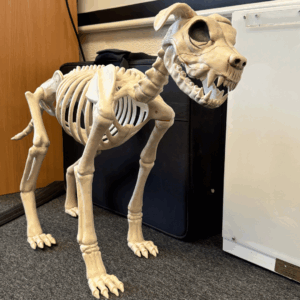
When we ran the course here, we decided that Anatomy and Physiology are very important, from a science point of view, alongside the nursing that they’ll cover in practice.
And to give them that science qualification, they deserve to have a really good understanding of anatomy and Physiology. some of our learners will go on to do Vet nursing and some will stay in practice and be really strong, confidence animal care assistants.
So, either way, we’ve given them massive support at the science base, so whatever qualification they may go on to pursue, if they do, they’ve got that really good basic understanding. And if they continue in practice, it gives them a deeper understanding of what’s happening now, with our patients on the medical side as well.
Why should learners choose Bottle Green Training and What’s Next?
We are hugely supportive of our students. They come in regularly, and they get the support they need. We’ve a very close-knit network here, which is not always evident in larger establishments, so that’s really important. We also provide ongoing professional development for qualified nurses. We get to feed out to practices. We’ve some amazing members of staff here who hold additional qualifications. We continue to manage our Level 2s, Level 3s, and above, alongside numerous projects in the pipeline, which is also important.
Meet the Level 3 Veterinary Nursing Students
Lucy: Hi, my name is Lucy. I started at Bottlegreen Training on Level 2 and that’s now progressed me on to the Level 3 Veterinary Nursing.
Wayne: Hi, I’m Wayne Beardmore. I work at Blenheim Vets in Ashbourne, Derbyshire, and I’m currently doing my Level 3 Veterinary Nursing.
What led you to study at Bottle Green Training?
Lucy:I started at my current job as a receptionist and wanted to progress to be a Veterinary Nurse, but I didn’t
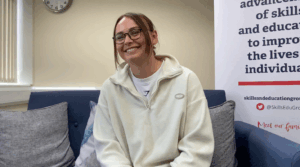
get my science. I was really happy to have been put through the Bottle Green programme to obtain the right qualification and then to progress onto the Level 3 course.
Wayne: I just took the plunge one month, to start trying to get into Veterinary Nursing and then completed the Level 2 course with Bottle Green, along with my functional skills because I didn’t have any GCSEs. It all started from there, and now it’s led up to doing my Level 3.
How do you find the balance between studying and working?
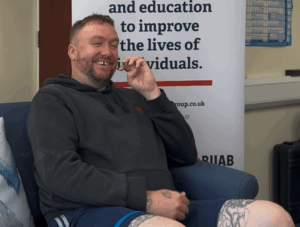
Lucy: Year one, compared to Year 2, was a breeze. There’s a bit more work in year 2, but it’s nothing you can’t handle. You have to prioritise things, be organised. It’s not overwhelming, as long as you make a plan.
Wayne: Yeah, it’s good. It’s hard at first to get back stuck in again, at my age as well. But once I got the ball rolling, things got a lot easier. It’s just getting back into the learning side of things again.
What is it about Veterinary Nursing that appeals to you?
Lucy: I never knew what I wanted to do. I was in retail for five years, and I’ve always thought I love animals. I love the animals I’ve, I love everyone else’s animals, and just the thought of being able to work with them every day, care for them, and try to help them feel better – I just thought that would be a dream do every day for work.
Wayne: It’s just the animal side of things, to be fair. I’ve always wanted to do it. But when I was at school, I didn’t want to go to college, I just wanted to leave school and start work. And then I got fed up of doing the same thing at work every day, and I thought I’m going to take the plunge to try and get into Veterinary.
What made Bottle Green Training stand out to you?
Lucy: My work has always used Bottle Green; apart from people who have qualified via the university route, they’ve always sent people through Bottle Green. So, it was their straightforward choice, and it’s clear they have a lot of faith and trust in Bottle Green. They have so many students that qualify, so it’s just their first point of call.
Wayne: Here, the support, what you are taught, and how you are treated as an individual, are absolutely brilliant. You can’t fault that.
What would you say to anyone considering this pathway?
Lucy: I would say do it! It’s only three years out of a whole life. I really wish I had done it sooner and knew what I wanted to do instead of wasting so many years in a different job. If you’re thinking about doing it, just go for it.
Wayne: I would advise anyone to come to Bottle Green.
Well, I’ve got a bike. Then I want to pursue exotics. Don’t even see it. Exotics much in practise. So it needs to be put on the map. I think as I say to get it more used as in practise.
Check out our Animal Care Qualifications here.
Explore our Progression Routes here.
Watch the Full Conversation here.



